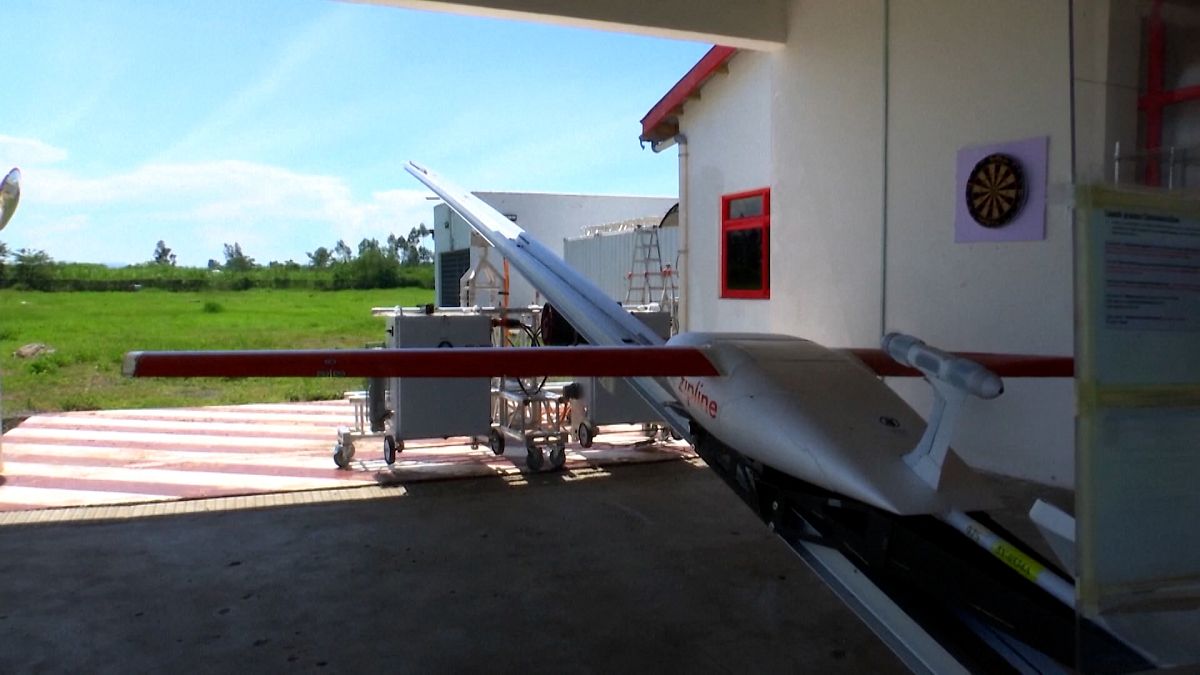Zipline, a service operated by Samuel Sineka, is revolutionizing access to healthcare in Kenya by solving access problems exacerbated by bad weather. Through the use of drones, Zipline enables the rapid delivery of medicine to clinics in remote areas, allowing health staff to remain on-site and serve the communities more efficiently. This innovative approach to healthcare delivery is helping to bridge the gap between communities and essential medical supplies, especially in regions where transportation is a challenge.
One of the key benefits of the Zipline service is its ability to raise awareness of HIV, particularly among young people. At events such as football matches, the drones drop packages containing resources to promote HIV awareness and testing. This unique method has enabled large-scale testing efforts, which are crucial in the fight against the HIV epidemic in Kenya. By leveraging drone technology for healthcare outreach, Zipline is not only delivering essential medical supplies but also playing a vital role in educating communities about health issues.
The impact of Zipline’s HIV awareness campaigns extends beyond medical testing. By reaching out to communities in a creative and innovative way, Zipline is helping to break down barriers and reduce stigma surrounding HIV. This approach is particularly effective among young people, who may be hesitant to seek information or testing at traditional healthcare facilities. Through the use of drones and targeted outreach programs, Zipline is making HIV education more accessible and engaging for a wider audience.
In addition to promoting HIV awareness, the Zipline service is also addressing logistical challenges in the healthcare sector. By bypassing roadblocks caused by bad weather or poor infrastructure, the drones are able to deliver medical supplies quickly and efficiently to clinics in need. This not only reduces the risk of stockouts but also ensures that health facilities are well-equipped to provide quality care to patients. By streamlining the delivery process, Zipline is helping to improve healthcare outcomes and save lives in underserved communities.
The success of Zipline’s drone delivery service highlights the potential of technology to transform healthcare in developing countries. By harnessing the power of innovation and automation, Zipline is overcoming longstanding barriers to access and delivering essential services to those who need them most. As the demand for efficient healthcare solutions continues to grow, initiatives like Zipline are paving the way for a more inclusive and sustainable healthcare system in Kenya and beyond. Through strategic partnerships and community engagement, Zipline is reshaping the future of healthcare delivery and making a positive impact on the lives of individuals across the country.
In conclusion, the Zipline service, spearheaded by Samuel Sineka, is a game-changer in the healthcare sector, providing a lifeline to underserved communities in Kenya. By using drones to deliver medicine and raise awareness of HIV, Zipline is revolutionizing healthcare access and education in remote areas. With its innovative approach and commitment to improving healthcare outcomes, Zipline is setting a new standard for healthcare delivery in developing countries. As the service continues to expand and evolve, it has the potential to transform the way healthcare is delivered and accessed, ultimately making a lasting impact on the health and well-being of communities across Kenya and beyond.











